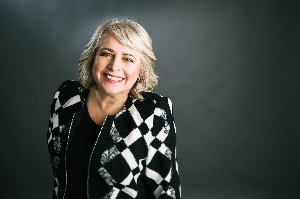A KiwiSaver's pandemic panic
A recent complaint investigated by Financial Services Complaints Limited (FSCL) has highlighted the need for personal finance advice before making hasty decisions around changing KiwiSaver fund types.
Wednesday, April 21st 2021, 6:00AM  2 Comments
2 Comments
by Matthew Martin

FSCL chief executive Susan Taylor.
The warning comes as FSCL found in favour of a KiwiSaver provider after a member made the panicked decision to change their fund type from growth to conservative because of the impact of the Covid-19 pandemic and the resulting market-wide downturn last March.
“It is usually not recommended to switch funds immediately when there is a sudden market downturn, because then any losses are crystallised,” says FSCL chief executive Susan Taylor.
"While it is understandable that people panic when there is market volatility, it is wise to wait it out as the market will inevitably improve," Taylor says.
Janet, 60, had contacted her KiwiSaver provider in late 2019 to make sure she was in the right KiwiSaver fund to reach a target balance by the time she was 65.
Her provider gave her the relevant information, as well as a link to an online KiwiSaver calculator to make her decision and she chose to remain in the growth fund.
In mid-February 2020, Janet’s KiwiSaver balance was $90,000, however, by March 23, as New Zealand headed into the first level 3 and 4 lockdowns, her balance had fallen to $74,000.
Janet panicked and requested her provider move her into a conservative fund. The provider warned her that market downturns and corrections were common, and it was a matter of waiting out the pandemic-induced downturn.
Over the next few months, Janet requested a large amount of information including what steps the provider had taken to minimise the effect of the pandemic on investors.
Collecting the information took the provider time and in July 2020 Janet complained that not only had her provider caused her KiwiSaver balance to drop significantly by March 2020, the delay in getting the information she requested also meant that she had not moved back into the growth fund, which had recovered relatively quickly after the March 2020
downturn.
“One of the fundamental factors that influenced our decision is that the provider could not have predicted the impact of the pandemic on the market," says Taylor.
"It could also not be determined whether having the information Janet requested would have made a difference to her decision to stay in the conservative or move back to the growth fund.
“In each respect, Janet was looking at what had happened in the market retrospectively. It would have been impossible for the provider to proactively contact all their customers in early 2020 to advise there could be a decrease in their balances if the pandemic continued to escalate,” Taylor says.
While the FSCL did find the provider could and should have done more to suggest Janet seek advice from a financial adviser, it would have been impossible to know whether Janet would have done this had it been suggested to her.
The time it took to give Janet the information she requested was fair, given the complexity of the information she required.
“Janet could have asked for more information about how the growth fund was performing after March 2020, but she did not. We also found that this information was freely available on the provider’s website, so she could have made an informed decision to move back to the growth fund earlier if she wanted to,” says Taylor.
“A number of New Zealanders took the action Janet did in early 2020 and moved from a growth to a conservative KiwiSaver fund, which unfortunately would have led to crystallising their KiwiSaver losses.
"Best practice is to not panic if there is a market shock. Wait it out. If you are not sure what to do, seek personalised advice from a financial adviser who is best placed to give you advice tailored to your needs,” Taylor says.
| « Pathfinder first carbon-neutral KiwiSaver | Kiwi Wealth invests more into private equity » |
Special Offers
Comments from our readers
Sign In to add your comment
| Printable version | Email to a friend |



forget about the term "best practice". most important question before you put your money into the investment, do you understand what you are going to invest in? if not, than it's gambling, not investment.